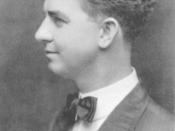LXD 211BB -- Litigation I Julie Sorrenti Pricipal Steps in a Civil Lawsuit: 1) Hiring a lawyer 2) Preliminary investigations and research 3) Commencement of proceedings 4) Exchsnge of pleadings - Statement of claim and defence 5) Examinations for discovery of the parties and the discovery of documents 6) Motions 7) Pre-trial conference and trial preparation 8) Trial 9) Appeals.
- Retaining a Lawyer consult friends and family and get recommendations, call the law society, look in the yellow pages.
Retainer - K b/w a lawyer and a client, in which services to be provided by the lawyer are described and the terms and conditions for payment by the client are set out. - Refers to the cash deposit to be used to pay future fees and disbursements as they are incurred.
-It is used to describe the hiring of a lawyer to be available generally to provide advice over a period of time.
Contingency Fees - where the lawyer gets paid a percentage of the judgment oly if s/he wins the case............
- Legal fees determined by: 1) the amount of money at stake in the action 2) the ability of the client to pay 3) the amount the lawyer would spend on the pre-trial stage and the trial 4) the degree of complexity of the legal /or factual issues 5) the degree of success the lawyer is able to achieve 6) Expertise and experience of the lawyer.
Cause of Action - the lawyer has to ask whether or not the facts, as related by the client, identify a legal right or issue which gives rise to a legal remedy for the client. The lawyer must consider whether there is sufficient evidence to prove the facts. Their must be a connection b/w the P and D with sufficient evidence.
- Standard of proof is on the plaintiff, their obliged to prove their case on Balance of Probabilities, they must show the crt that it is more likely than not that the P version of the case is true. (there may be a possible doubt) - Different types of evidence, Testimonial, Documentary, Physical and Expert (used to prove a fact.
Balance of convenience - practical, fact based test, in which the crt examines how difficult, expensive or time consuming for the parties to try the case in one location rather than another. If the P has chosen a location, the D needs to show that it is at a greater disadvantagethere b/c of the residence of the witnesses, travel costs and similar matters.
Examination for discovery - may take place at special examiners office, parties under oath, parties have a right to be present when their lawyer is questioning the opposing side, P and lawyer D and lawyer and crt reporter are all present, question every aspect if the event (1. want to find out what other sides case is about and worth $, 2. b/c P and D are under oath all info may be used at trial), send transcript to client to fix any error.
Affidavit of documents - your client will give you any evidence they may have (1. docs u don't want to dispose of are producable 2. priviledged docs usually b/w client and lawyer)





